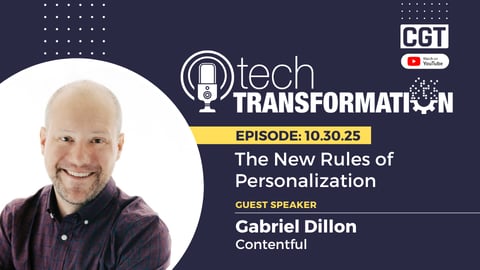Generative AI Frenzy Burns On As Most Execs Rank Benefits Over Risks: Gartner
The excitement surrounding generative AI is fierce, and consumer goods executives may want to settle in for the long haul as they evolve from experimenting with ChatGPT to driving transformation for tremendous revenue growth opportunities.
A March/April survey of more than 2,500 executive leaders by Gartner found that 70% of them are investigating or exploring generative AI, while 19% are in pilot or production mode. Further, 45% said ChatGPT publicity prompted them to increase investments within artificial intelligence.
“The generative AI frenzy shows no signs of abating,” said Frances Karamouzis, distinguished VP analyst at Gartner, in a statement. “Organizations are scrambling to determine how much cash to pour into generative AI solutions, which products are worth the investment, when to get started, and how to mitigate the risks that come with this emerging technology.”
Executives are fairly bullish on the potential of generative AI, with more than two-thirds (68%) stating that they think its benefits outweigh the risks. In fact, just a meager 5% feel the risks outweigh the benefits.
With that said, Gartner warned that once generative AI’s new-thing shininess dulls and investments get a little more serious, the fervor may dampen a bit, and organizations will take a harder look at the impact of the potential risks.
“Initial enthusiasm for a new technology can give way to more rigorous analysis of risks and implementation challenges,” said Karamouzis. “Organizations will likely encounter a host of trust, risk, security, privacy, and ethical questions as they start to develop and deploy generative AI.”
At 38%, customer experience was the most cited primary focus for investments in generative AI in Gartner’s survey. In these early experimentation days, common use cases include code generation and media content improvement, according to the firm.
However, Gartner caveated, the potential doesn’t stop there, as generative AI carries benefits that can augment humans or machines to autonomously execute business and IT processes.
“Autonomous business, the next macrophase of technological change, can mitigate the impact of inflation, talent shortages, and even economic downturns,” said Karamouzis. “CEOs and CIOs that leverage generative AI to drive transformation through new products and business models will find massive opportunities for revenue growth.”
Experiments Abound, Caution Remains
The consumer goods industry is heating up with examples of manufacturers and retailers trying to figure out just how generative AI tools make sense for their business while remaining cognizant of the accompanying hazards, including the technology’s ability to “hallucinate” and confidently provide incorrect information.
It certainly did not go unnoticed, for example, that Geoffrey Hinton, “the godfather of AI” departed Google this month and joined the critics becoming gravely concerned with the potential harmful implications of the technology.
Coca-Cola, which was early out of the gate with a partnership with OpenAI, has already leveraged ChatGPT and DALL-E for a “Create Real Magic” promotion that enabled consumers to design advertising that appeared on a billboard in New York’s Times Square. The No. 11 publicly owned consumer goods company is also exploring how it can leverage AI to create point-of-sale material with its bottling partners, as well as improve customer service and ordering.
Elsewhere, companies like Anheuser-Busch InBev, Nestle, and General Mills are investing in an AI assistant with OpenAI GPT-4 language model to improve ease of business intelligence discovery.
“Knowing how to ask questions of the data is a skill in itself,” Chris Potter, global applied analytics at Nestle and General Mills’ joint venture Cereal Partners Worldwide (CPW), told CGT recently. ‘’[The tool] will help solve this for colleagues that need to build data based insights but perhaps have a more basic understanding of the data.”
That’s not to say consumer goods executives are ignoring the risks. Seventy percent of enterprise CMOs are expected to identify accountability for ethical AI in marketing as a top concerns, according to Gartner.
For example, General Mills is already piloting ways to combat misinformation within its marketing campaigns, a task made exponentially more difficult given the ease in which harmful content can be created using GAI tools like DALL-E.
“The challenges facing marketers today will only get more complex and relentlessly heightened in an era of generative AI,” Lisa Roebuck, media director, noted to CGT. “And, more broadly than marketing, as AI tech continues to advance, generative AI will play an increasingly important role in the food industry at large, and General Mills wants to be among the companies at the forefront of this trend.”






